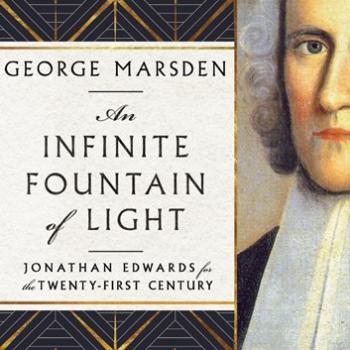It's tempting for Mormons to "just say no" to metaphysics and theology, terms I'll use interchangeably. I've given into the temptation at least momentarily myself. For example, I once wrote an essay tending in that direction. It had the antiquely long title, "Why a Mormon Won't Drink Coffee but Might Have a Coke: The Atheological Character of the Church of Jesus Christ of Latter-day Saints" (in Faith, Philosophy, Scripture, Maxwell Institute, 2010). So I've yielded to the temptation, but I've never gone all the way. You might say that I haven't yet inhaled.
The way Mormons usually see things, in the long run the introduction of metaphysics into early Christianity turned out to be a problem. On this view, that introduction was a direct cause of the creation of theologies and the arguments of theologies, of creeds and the divisions in the church that creeds created. In other words, metaphysics and theology brought apostasy, divisions in the body of the church. A response to those divisions, the Council of Nicea may have settled the questions that created the rift it was worried about. But the Council's metaphysical discussions and conclusions didn't heal the rift. Indeed, it made matters worse for at least another fifty years, and probably a good deal longer.
This isn't, however, about the history of Christianity, about which I know little. It's about the Mormon attitude toward theology. The events of the Nicene Council are only relevant as an example of the kind of problems that metaphysics can create. It isn't obvious that determining religions theologically, using belief rather than practice, or history, or something else, as the standard for deciding who's in and who's out, has worked to keep Christianity unified -- catholic. The more we focus on beliefs, the more divisions we seem to get. Yet many of us continue to focus on belief as the standard for what it means to be a Christian or a Christian of a certain sort.
One obvious response to this problem is to say and mean "no." No metaphysics = no creed or at least, perhaps, fewer divisions. Certainly the divisions would have different causes. But as tempting as some of us might find outlawing all metaphysics from Christian religion, we don't see anyone taking that approach. Has there ever been a Christian religion that has been completely non-theological? I doubt it, though I'll have to let the historians of Christianity have the final word on that question too. Christians have continued to do metaphysics and theology because it is impossible to avoid them. (My screeds against theology are themselves metaphysical. Metaphysics will get you coming and going.)
The early Christians didn't adopt metaphysical explanations of their beliefs because it was stylish to do so. They weren't trying to fit in among pagan intellectuals or make themselves popular with their persecutors and former persecutors. Contrary to what some Mormons think, neither is there any evidence of a cabal working to destroy God's work and using Greek philosophy to do so. Instead, early Christian leaders were, first of all, responding to the real issues that confronted the Christian community as it was attacked from outside and as it encountered heresies within, heresies created or at least underscored as theological arguments and requiring response. Whatever the problems of metaphysics, apology is an unavoidable Christian activity, and apology often requires metaphysics. Perhaps eventually it always does. If you're going to do apology, then you're going to do theology, and unless you practice your religion in a vacuum, you're eventually going to do apology of some kind. Q.E.D. for theology.
Presumably, just as we sometimes run up against questions for which we feel an acute need for rational answers, early Christians were also, secondarily, responding to questions that arose in their minds as they thought about their religious lives. Apart from the challenges to religion made by skeptics of one sort or another -- believers or not -- genuine intellectual challenges arise as we think about our life before God. In a culture with a history such as that of the West, those challenges push us to demand answers that accord with reason. Unavoidably those answers will eventually be metaphysical / theological. Q.E.D. again.
So it isn't enough to say, "Don't do that!" Many of us and many of our children and friends seem unable to keep ourselves from it. Just saying no won't help, and it may well hinder those who have questions. The advice to stop thinking about theological questions, like advice to stop looking at pretty women by constantly reminding yourself not to do so, is likely to make those questions all the more acute. It is certain to make religion look like nonsense to someone who is struggling with faith.
The Mormon response to the difficulties created by the tension between metaphysics and its unavoidability is ingenious and perhaps unique among Christians: On the one hand, hold to basic beliefs and practices while giving as few as possible officially approved or even officially suggested metaphysical explanations of those beliefs and practices. But, on the other hand -- rather than, as might be expected, simply demanding the impossible by forbidding metaphysical explanations of beliefs -- allow that speculation to proceed apace, but without official sanction.





